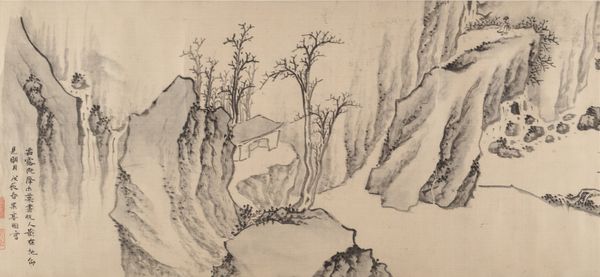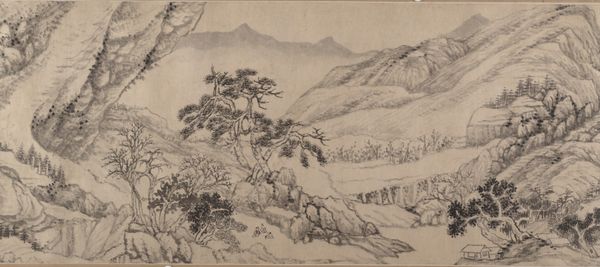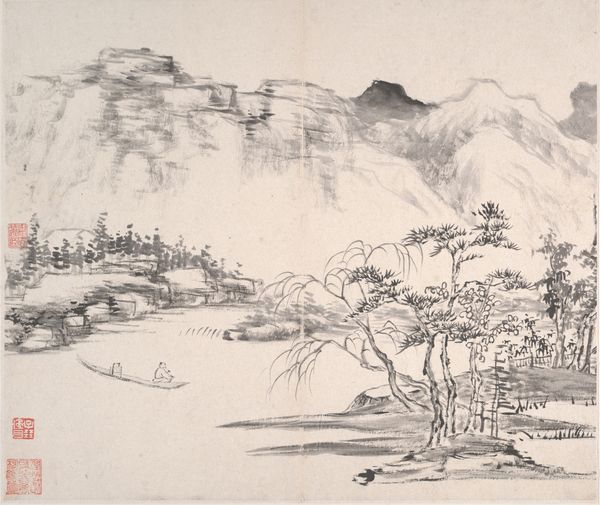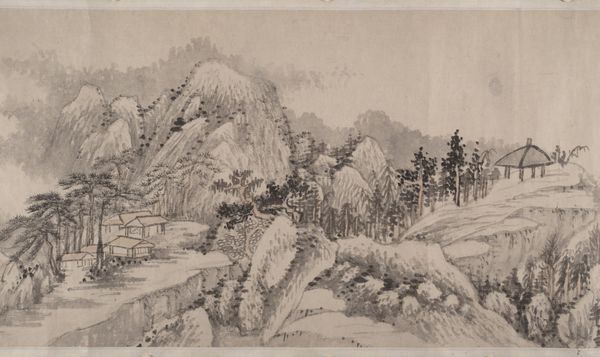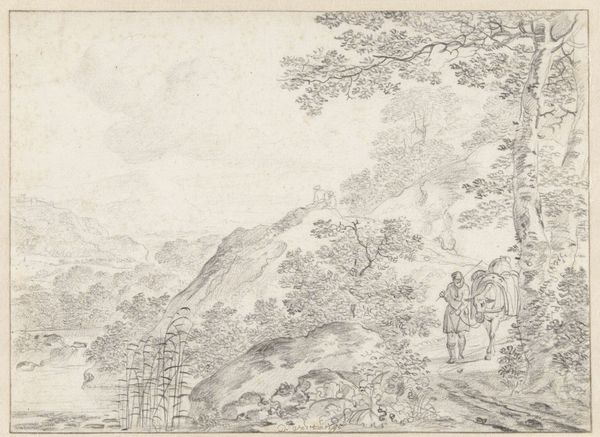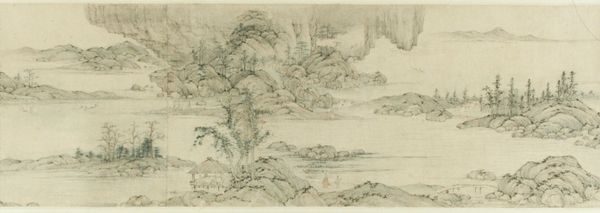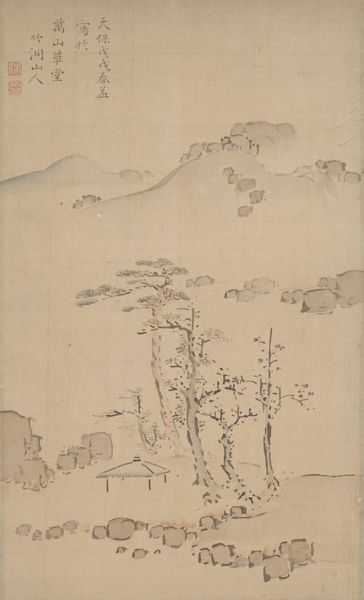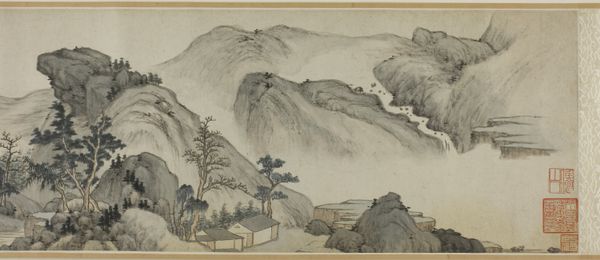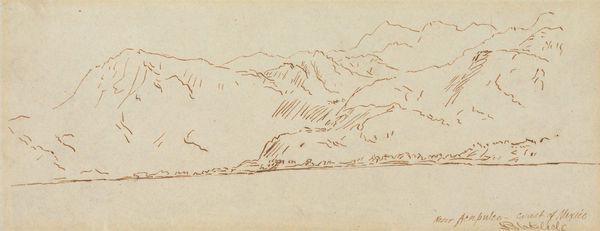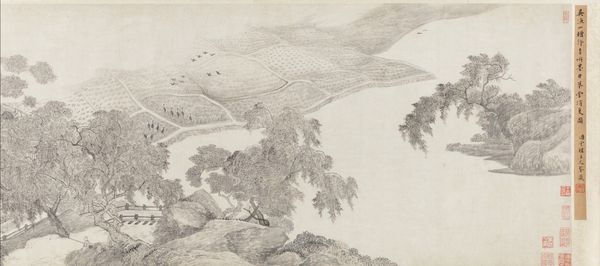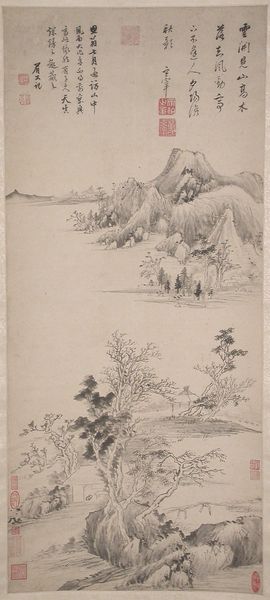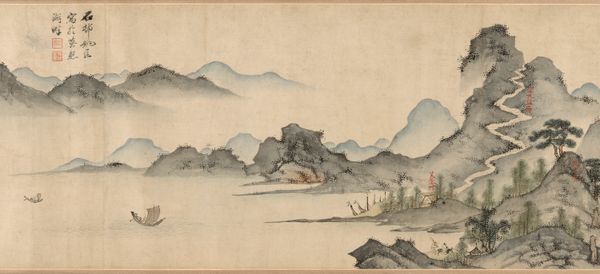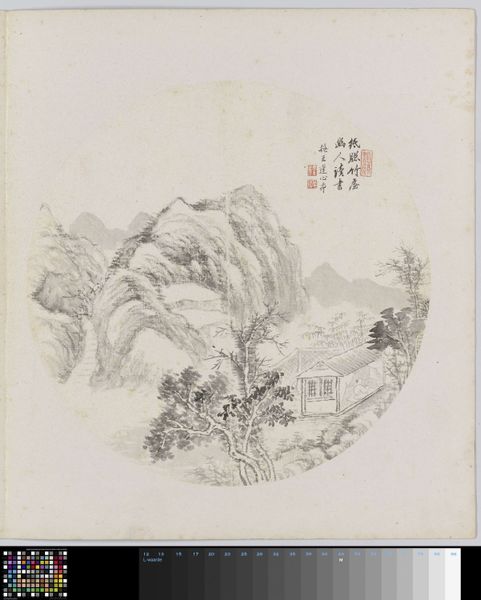
drawing, paper, ink
#
drawing
#
pencil sketch
#
asian-art
#
landscape
#
paper
#
ink
#
china
#
realism
Dimensions: 12 1/4 x 7 5/8 in. (31.1 x 19.4 cm)
Copyright: Public Domain
Curator: Here we have a work titled "Landscapes" created by Dai Xi around 1848. It's a pencil sketch, using ink on paper, and is currently held here at the Metropolitan Museum of Art. Editor: It's hauntingly beautiful. The delicate strokes, almost faded, give it such a melancholic feel. It’s like a memory surfacing from a dream. Curator: It's very much within the traditional Chinese landscape painting aesthetic. Note how the artist used empty space, particularly the large blank area above the mountains. This negative space isn't just a void; it actively contributes to the work's depth, implying vast distances and atmospheric perspective. Editor: That emptiness is doing all the work, isn't it? Like a quiet breath before a storm. Those mountains almost disappear into the mist, they are like pale ghosts or frozen mirages in the distance. It does not have the strength and vitality like mountains in landscape painting, instead it reflects weak melancholy and sad beauty. Curator: Precisely. The work's cultural context also affects our reading, because this composition would be rooted in specific philosophical ideas that emphasize harmony between people and nature. Editor: Harmony... yes, I see that, but with a touch of longing, wouldn’t you say? I mean, look at the bare trees. They’re elegant, of course, but so vulnerable. There is this kind of bleak beauty and a loneliness inside it that attracts my feelings. It almost makes me sad just thinking about the trees alone. Curator: It is an intimate engagement with nature—perhaps offering viewers an escape. But what the piece signified back then depended significantly on social circumstances, particularly access to this piece: who saw it and where. Those aspects frame the impact and meaning of a work immensely. Editor: Makes you think, doesn't it? Did people then respond similarly? Is it just ink and paper…or does it possess something? A collective emotional memory embedded in it that allows the beauty of this sadness and bleakness still exist today? Curator: Food for thought indeed! Thanks for your impressions! Editor: Likewise. This image has changed my perspective on East-Asian landscapes for good!
Comments
No comments
Be the first to comment and join the conversation on the ultimate creative platform.
